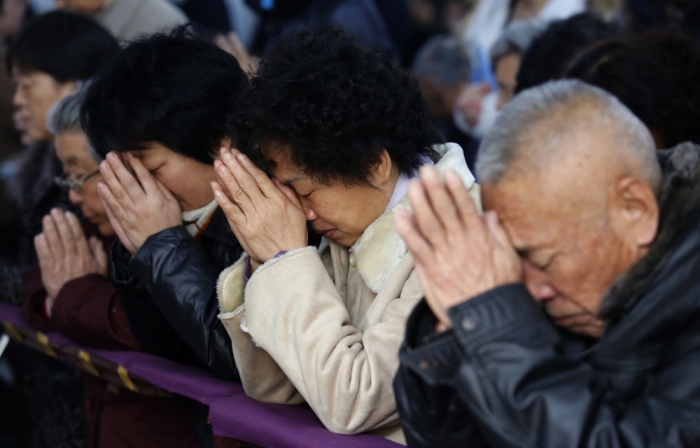China Raids Christian Church Amid Ongoing Crackdown Targeting Believers

The Chinese government's crackdown against Christian churches has reportedly continued, with authorities shutting down a church in the Guizhou province where a pastor cared for orphans, the sick and elderly.
"Most of our congregation was very upset," pastor Su Tianfu Su of Huoshi Church in Guiyang, told Voice of America News on Thursday.
"We feel we're a faithful group, which has done nothing but a lot of charitable work in Guiyang by reaching out to those in need, including orphans and the sick and the elderly."
The pastor has said he will seek to overturn the closure through legal means, and has said that the congregation remains faithful, even though many have been threatened not to return to services.
The church was raided on Wednesday, when dozens of police officers broke up a fasting and prayer session that close to 200 church members were attending.
China's Communist Party has been shutting down churches across several provinces throughout 2015, targeting unregistered churches, or church buildings that it claims violated building codes.
There has been particular outrage over police tearing down church rooftop crosses, with Christians being arrested and put in jail for standing up to authorities.
A church leader in the eastern province of Zhejiang said back in August that there is a definite campaign against Christianity being carried out by the government.
"We think it is a campaign targeting church leaders across the province. It can only be a co-ordinated action initiated by the provincial government," said the church leader, whose name wasn't shared for security reasons.
The campaign against churches prompted Roman Catholics and Protestants to march in protest in Zhejiang in July, carrying crosses with them everywhere in response to the crackdown.
VOA noted that it is difficult to estimate the total size of China's Christian population, but reported that is growing and could already be larger than the 88-million-strong Communist Party, which is believed to be one of the main reasons churches have been targeted in recent years.
Houshi Church was one church that experienced such rapid growth, going from dozens of members in 2009 to over 700 in 2015.
"Firstly, our quick expansion. Secondly, we refused to cave into pressure or join the [party-controlled] Three-Self Patriotic Church. And thirdly, we always take legal action in face of difficulties. I think these three aspects have annoyed [officials] very much," a church source said about why the church was targeted.
Yang Fenggang, director of Purdue University's centre on religion and Chinese society, said that Chinese authorities want to ensure churches are "submissive," The Guardian reported in November.
"It is clear that the top leaders feel unease with Christianity," he offered.
"Experts and religious leaders say the chill that has descended on China's Christian community is not the result of doctrinal matters but rather Beijing's fear that the rapidly growing church could become a political threat," the report added.
Phil Entwistle, who researches Christianity and nationalism at Berlin's Mercator Institute for China Studies, said that many people in China have been turning to Christianity out of a sense of "disillusionment and dissatisfaction with Chinese life."
"There is a real sense of moral vacuum, that China has lost its way. It's made people ask deep questions. Some are looking for a source of community that they can't find elsewhere — and it's especially prevalent among educated Chinese," Entwistle added.





























